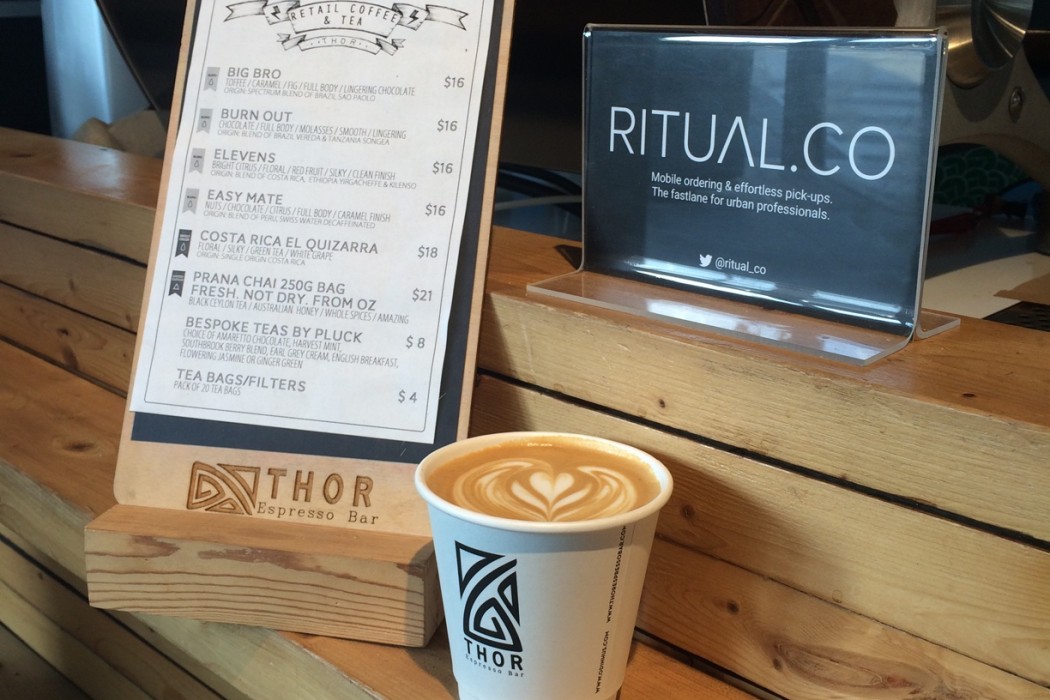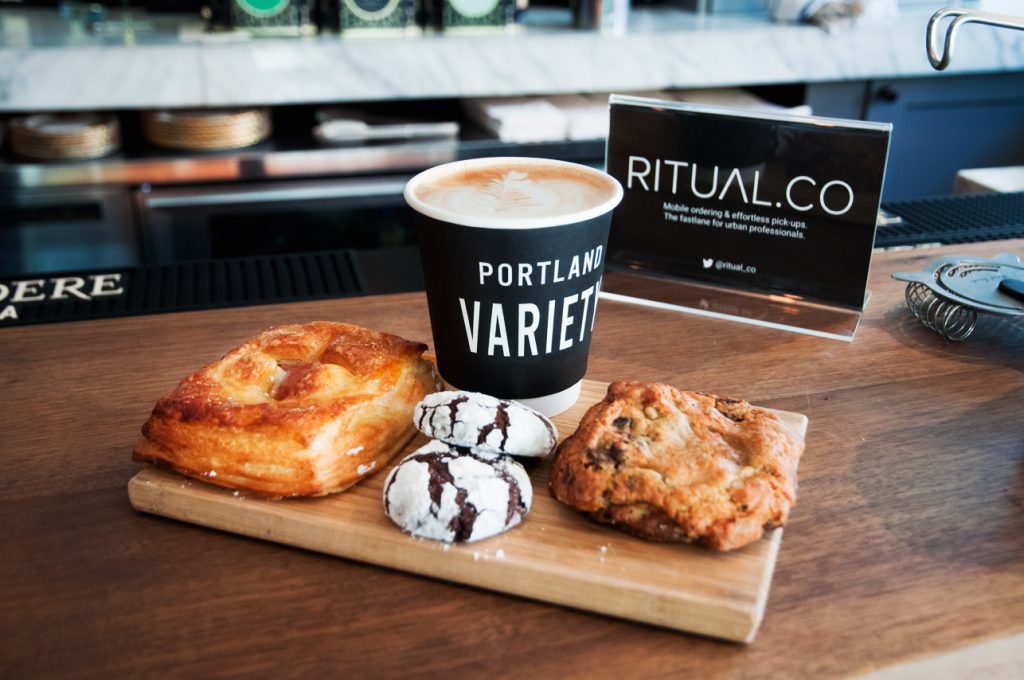
If you’re a Torontonian that hates wasting time in lineups and prefers to just grab your coffee or meal quickly, you probably have developed an affection for that Ritual app sitting on your phone.
Ritual isn’t just another Uber for X app. “I spent a lot of time in the world of delivery while I was in Google,” Ray Reddy, founder of Ritual, told BetaKit. “We believe that in the world of retail and services, the growth will be about commerce coming to you, rather than you coming to commerce. A lot of retail, and certain aspects of food will move to delivery.” Ritual puts busy professionals into a fast lane by simply adding convenience into the everyday coffee, lunch and dinner transactions.
Ritual’s mass-market focus
The team behind Ritual isn’t serving the 1%, focusing on the mass and middle-class market instead. Ritual solves for the needs of professionals on their lunch or coffee break – people who watch their budgets and have limited time to waste.
“Our model is quite simple. People make their lunch purchases in the radius of where they are. So we’ve taken on a hyper-local approach to how we figure out supply.”
– Ray Reddy, Ritual CEO
“We know that 50% of the U.S. population transacts with QSR two to three times a week,” said Reddy. “It’s a massive industry, and it’s serving regular people. There have been delivery companies for over a decade in the U.S. So while delivery has been around for a decade, it’s a tiny portion of the market, and the Amazon model hasn’t been figured out yet. Our model is quite simple; we thought a lot about how to build something that’s useful for people. Toronto alone has about 1.5 to 2 billion dollars in QSR spend. People make their lunch purchases in the radius of where they are. So we’ve taken on a hyper-local approach to how we figure out supply.”
Ritual focuses on corporate users, and some of those corporate users are getting pretty creative with the platform. For example, AOL uses Ritual as part of its micro-rewards program, offering people more frequent and smaller perks: lunches on Fridays, or lunches for the entire team. Offering convenience and access to local gourmet lunch and coffee can be quite compelling. “We have many companies doing interesting things with our platform: to complement delivery, or catering, take the pain out of the expense reports. It’s easy to see what’s been billed to the company’s account, and saves everyone time and adds a ton of convenience,” said Reddy.
The Ritual team has grown over the last few months, from less than ten people and to well over 20. “We’ve gone from one neighbourhood in Toronto to seven. Right now, we are working with property managers. We’re taking over the financial district tower by tower. Just two to three months ago, we had seen healthy growth from 80 to over 300 restaurants and cafes on the platform.”

Ritual’s bet on indie coffee and small business
For merchants and small business owners, competing with the likes of Starbucks is the new reality. Since they’re not tech companies, they can’t possibly keep up with the cycles of change in technology. In the world of mobile that competes on convenience and customer experience, many small businesses are drawn to the value apps like Ritual can offer.
“Beyond the cost of building our own app, the main reason we’ve partnered with Ritual is that no one wants ten different restaurant apps on their phone,” says Mustafa Yusuf, owner and CEO of Big Smoke Burger. “With Ritual, all the local favourites are available in one-stop, making the customers’ lives simpler. It flows seamlessly with our customers daily habits, from a morning coffee to lunch on a tight timeline, making it perform for both us and the customer, allowing all of us to benefit from having multiple choices to dine, drink and snack, in one convenient location. As a result, a lot of people use Ritual regularly and we benefit from that.”
Ritual claims success at figuring out the model to manage the supply and demand of local businesses at scale.
“The main reason we’ve partnered with Ritual is that no one wants ten different restaurant apps on their phone.”
– Mustafa Yusuf, Big Smoke Burger
“Merchants on Ritual are usually very successful, because we have ways to predict that success,” said Reddy. “We take our concentrated demand of corporate spend and drive it to a certain percentage of merchants in a target zone. Some of our best merchants will do well over $100,000 this year, just because of their partnership with Ritual. Since we take a percentage of sales we drive, we’re motivated to create a situation where it’s free for merchants to be on Ritual and it costs them nothing, unless we drive incremental sales.”
“We invest in great relationships with our restaurants and cafe partners. We have recently hired an account manager for our merchant partners to work with them closely on how to take orders, streamline operations, and adapt to the increases in volume that Ritual is driving,” said Josh Sookman, Head of Expansion at Ritual.
Given the ambitious plans to expand into the U.S., just months after the product hit the Canadian market, Ritual is looking to double the team by the end of the year. The startup is currently hiring data scientists and GMs, and is boosting the product expansion team to take Ritual to the new cities. Meanwhile, a larger chunk of Toronto can expect to benefit soon from Ritual’s sleek mobile experience and skip those lunch rush hour lineups for good.


